Connecting Civic Education and a Healthy Democracy
How Carnegie Corporation of New York and Its Allies Are Supporting the Drive for State-Level Policy Change
 Written by William H. Woodwell, Jr.
Written by William H. Woodwell, Jr.
space 2 line widths = 3.4658 pts. step & repeat
2024
March
A Report From Carnegie.org/CivicsPolicy | Facebook: @CarnegieCorporation | Instagram: @ CarnegieCorp | LinkedIn
More and more Americans understand the transformative power of civic education for young people. Now the challenge is to translate that understanding into real action to expand and improve civic learning in the nation’s schools.
— Andrew Geraghty, Program Officer, Strengthening U.S. Democracy, Carnegie Corporation of New York
2
“ ”
PREFACE
Funding for civic learning (both from philanthropy and government) is woefully inadequate. The United States invests just 5 cents in civic education for every 50 dollars that goes to education in the science, technology, engineering, and math (STEM) subjects. According to a 2022 poll by iCivics and More Perfect, 65 percent of likely voters across party affiliation (59 percent Republican and 74 percent Democrat) support more funding for it.
Current data on civic knowledge is alarming. The 2023 Annenberg Civics Knowledge Survey found that about one in six Americans could not name any of the three branches of the U.S. government; and a significant portion of Americans did not know what rights are protected under the First Amendment. Eighth graders’ scores in civics registered their first decline, according to data from the 2023 National Assessment of Educational Progress, since testing began in 1998. With an increasingly divided country, growing polarization and disengagement, the rapid spread of misinformation and conspiracy theories, and a collapse in trust in elections, democracy, and democratic institutions, the need for accurate history and government instruction is greater than it has ever been.
Driven by the belief that education and educated citizens are critical to a healthy democracy, Carnegie Corporation of New York has invested $16.3 million in civic education for nearly three decades. In January 2024, the Corporation gave a $1.5 million grant to support iCivics’ CivXNow Coalition, which involves more than 320 cross-ideological partners throughout the country working to advance civic education policies at state and federal levels. Thanks to the strong advocacy of CivXNow Coalition members, states across the political spectrum have bolstered civic learning in recent legislative sessions, including Georgia, Indiana, Massachusetts, New Jersey, Oregon, Rhode Island, and Utah.
There is no one-size-fits-all approach to civic learning, and states are truly laboratories of change. Conservative, progressive, urban, rural, and otherwise diverse states have taken varied policy approaches to bolster civic learning, and they are all helping us move toward a common goal: a stronger democracy. This report highlights the need for state policies and investments that will ensure high-quality civic education for all students in the United States. Equipping young people with the tools to think critically, to engage in constructive debate, and to discover their agency is critical to reducing polarization and strengthening American democracy.
 Andrew Geraghty Program Officer
Andrew Geraghty Program Officer
Strengthening U.S. Democracy Carnegie Corporation of New York
3 CARNEGIE CORPORATION OF NEW YORK
INTRODUCTION
In August 2023 New Hampshire Governor Chris Sununu signed a bipartisan law to strengthen civic education in K–12 schools across the state. The “More Time on Civics” measure includes new requirements for a semester of civics for middle school students, plus instructional time for civics in elementary school. It also mandates that New Hampshire high school graduates, who already are required to take a half semester of instruction in civics and a full year in history and government, score 70 percent or better on the 128-question U.S. citizenship exam.
Leading the advocacy effort in support of the measure was the New Hampshire Civic Learning Coalition, a project of NH Civics. Maria Manus Painchaud, who served as interim executive director of NH Civics at the time, said the new law was the result of a comprehensive campaign involving teachers and coalition partners ranging from the statewide historical society to the New Hampshire School Administrators Association.
Citing the New Hampshire state motto, Live Free or Die, Painchaud said coalition members shared a common understanding that decisions about history and civics curricula should be left to local schools and districts. Where the state could play an important part, the partners agreed, was in ensuring that all students are getting at least a basic level of civics instruction.
“People came together in New Hampshire to make the case that civic education is good for kids and that it should be happening at all levels,” Painchaud said.
New Hampshire is not alone among the states in advancing bipartisan policies to make civic education available to more students. In 2023 alone, Carnegie Corporation of New York grantee partner iCivics was tracking 131 bills in 38 states related to civic education. In Minnesota, for example, Governor Tim Walz signed a measure requiring a civics course for credit for high school juniors and seniors across the state. Meanwhile, the Alaska State Senate passed new requirements for high school seniors to complete a social studies course and civics assessment in order to graduate; it is anticipated that the state house will take up the bill in 2024.
Progress in these and other states provides encouragement for the movement by the Corporation and many of its allies to strengthen civic education for the nation’s K–12 students at a time when many believe that American democracy is at grave risk. Shawn Healy, a former high school civics teacher who is now senior director for policy and advocacy for iCivics, leads the work of the CivXNow Coalition, which iCivics convened to advance civic education across the country. He said the states are a “real bright spot” in advancing civic learning.
4
“In state capitals across the country, we are seeing growing momentum for efforts to expand and strengthen civic education as an antidote to a lot of what’s wrong with U.S. politics and public debates on urgent issues facing the country and the world,” Healy said.
In January 2024, Carnegie Corporation of New York announced a major grant to support the CivXNow Coalition to build further momentum for policy changes that seek to expand civic learning in the nation’s public school curricula, with a focus on the states. In addition to state-based groups such as NH Civics, the coalition includes more than 310 organizations that approach the issue from a wide variety of perspectives and political points of view.
1in6
Americans cannot name any of the three branches of the U.S. government
Their shared goal in joining the coalition is “to help every K–12 school in the nation fulfill their historic and vital civic mission.”
“Carnegie Corporation is honored to provide significant support to the CivXNow Coalition as they strive to expand access to quality civic education for all students,” said Geri Mannion, managing director of the Corporation’s Strengthening U.S. Democracy program. “We consider the coalition’s work on this issue to be a fundamental piece of the puzzle when it comes to sustaining and strengthening U.S. democracy.”
Civic Education Policies Currently in Place in Each State

5 CARNEGIE CORPORATION OF NEW YORK
|
|
| 4.
assessment required |
|
service learning Number of Current State Policies in Place 0 1 2 3 4 5 6
State Policies: 1. Middle school civics course
2. High school civics course
3. Media literacy in learning standards
Civics
5. Civics seal or school recognition program for excellence in civics
6. Credit for students’
WHY CIVIC
EDUCATION?
WHY NOW?
There’s an obvious and sobering reason why civic education is getting fresh attention in Washington, D.C., and state capitals across the country: the nation is deeply divided, and some are wondering if our pluralistic democracy can survive. From the rise of misinformation and disinformation in politics, to vitriolic public debates that fuel hate and frustration, to the government’s inability to address fundamental issues such as immigration and climate change, there’s a growing sense that something is fundamentally broken.
A 2023 Harvard Youth Poll found that a significant majority of 18- to 29-year-olds (59 percent) agreed that “politics today are no longer able to meet the challenges our country is facing.” The numbers reflect a gloomy consensus among Americans of all ages. According to the Pew Research Center, for example, fewer than two in 10 Americans trust the government in Washington to do what is right “just about always” (1 percent) or “most of the time” (15 percent). This was among the lowest trust measures in Pew’s seven decades of polling.
The problem is not just a decline in trust, however. It’s also a lack of understanding about how our government and our democracy work, and how “we the people” can help drive change. The latest Annenberg Civics Knowledge Survey released in September 2023 found that about one in six Americans could not name any of the three branches of the U.S. government; and a significant portion of Americans did not know what rights are protected under the First Amendment. For example, only four in 10 named freedom of religion as a First Amendment right, and less than three in 10 named freedom of the press.

6
CivXNow State Policy Menu
To strengthen the quality of K–12 civic education, Carnegie Corporation grantee the CivXNow Coalition is urging state education policymakers to focus on the following policy goals.
Universal Access
States should work to strengthen course requirements in civic education to ensure all students have access to high-quality learning opportunities.
State Standards
States should update standards for social studies in alignment with the Educating for American Democracy roadmap, while ensuring a uniform approach to media literacy instruction across core curricular areas.
Teaching Requirements
States should strengthen pre-service requirements for civics teachers by requiring undergraduate courses in U.S. government and U.S. history.
Educator Professional Development
States should provide adequate resources for ongoing professional development for civics teachers, so they can strengthen their civic and historical content knowledge and their understanding of instructional strategies, including media literacy.
Assessment and Accountability
States should provide student credentialing benchmarks at appropriate grade levels, including civics graduation seals or certificates, with district-level implementation, while requiring (and aggregating) civic learning plans from local education agencies to assess progress.
Youth Participation
States should ensure that youth voice and participation are included in education and community decision-making by ensuring meaningful student representation on local boards, commissions, and other governmental bodies.
Equity in Civics
States should actively recruit and work to retain social studies teachers of color, and disaggregate civics assessment and accountability data to ensure equitable access and address disparate outcomes.
Implementation
States should establish or empower an in-state entity to help schools and districts implement new policies equitably and create designated funds to attract public and private investment in civic education policy.
7 CARNEGIE CORPORATION OF NEW YORK
Carnegie Corporation of New York and its partners believe civic education plays an important part both in ensuring that Americans have a basic knowledge of government and civic affairs and in promoting engaged citizenship. Peter Levine, a professor at the Jonathan M. Tisch College of Civic Life at Tufts University and coauthor with Cynthia Gibson of the 2003 Carnegie Corporation report, The Civic Mission of Schools, noted in an interview that the goal of civic education isn’t to move everyone to agreement. Rather, he said civics provides young people with the knowledge and the skills to engage in civil and reasoned debate on issues.
“What happens in good civics classes is that students are able to talk about contested questions in ways that promote learning and dialogue,” Levine said. “Civics gives young people crucial skills that will serve them throughout their careers and their lives.”
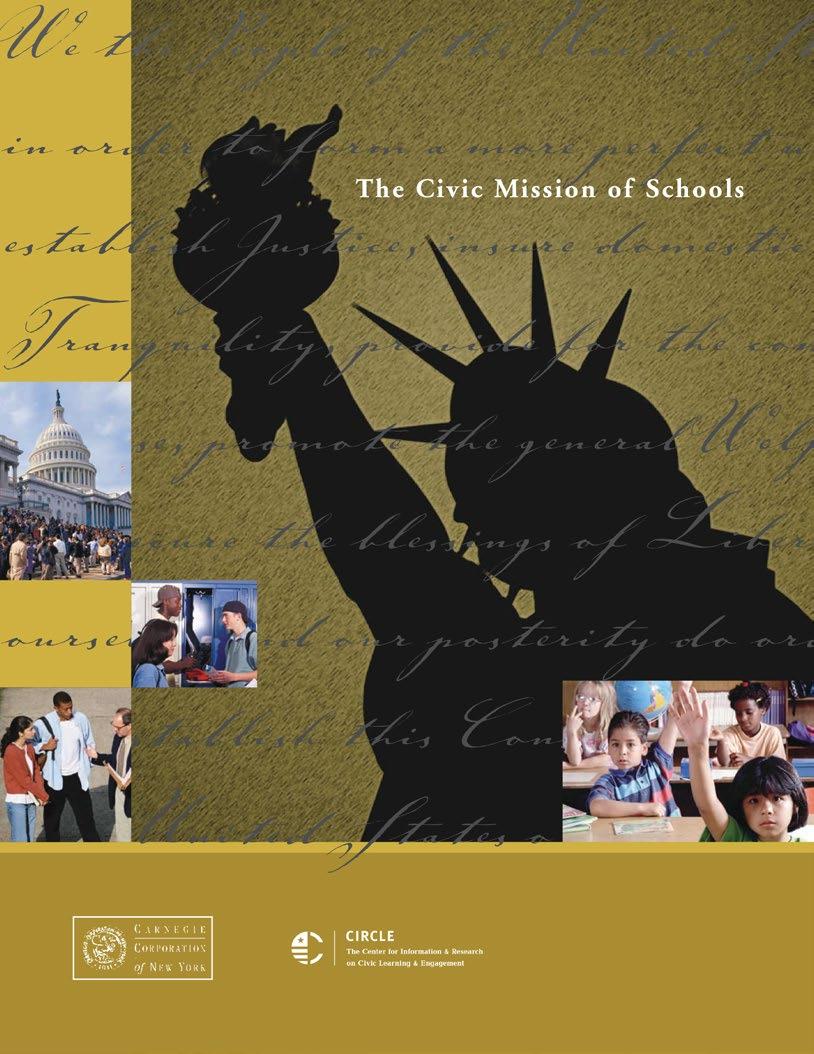
% who say they trust the government to do what is right just about always/most of the time
8
Eisenhower
0 20 40 60 80 100 1960 1970 1980 1990 2000 2010 2020
Kennedy Johnson Nixon Ford Carter Reagan H.W. Bush Clinton W. Bush Obama Trump Biden
Moving average Individual polls Public Trust in Government Near Historic Lows
Pew Research Center
in10 Americans trust the government
2
A NEW ROADMAP FOR STRENGTHENING CIVICS
But what does it take to ensure that more students have opportunities to be enrolled in “good civics classes”? Levine recently participated in a wideranging effort to help create a roadmap for transforming the teaching of history and civics in U.S. schools. Convened by iCivics and Harvard, Arizona State, and Tufts universities, the Educating for American Democracy initiative developed a cross-ideological framework that can inform the development of standards, curricula, materials, and lessons for history and civics.
Levine underscored that the Roadmap to Educating for American Democracy reflects the input and participation of educators and scholars from the right, left, and center, which he says is proof that strengthening civic education has broad — and bipartisan — appeal.
The Educating for American Democracy report, released in 2021, is a powerful call to action for the nation to invest in strengthening history and civic learning, and to ensure that civic learning opportunities are delivered equitably throughout the country. According to the report: “In recent decades, we as a nation have failed to prepare young Americans for self-government, leaving the world’s oldest constitutional democracy in grave danger, afflicted by both cynicism and nostalgia, as it approaches its 250th anniversary. The time has come to recommit to the education of our young people for informed, authentic, and engaged citizenship.”
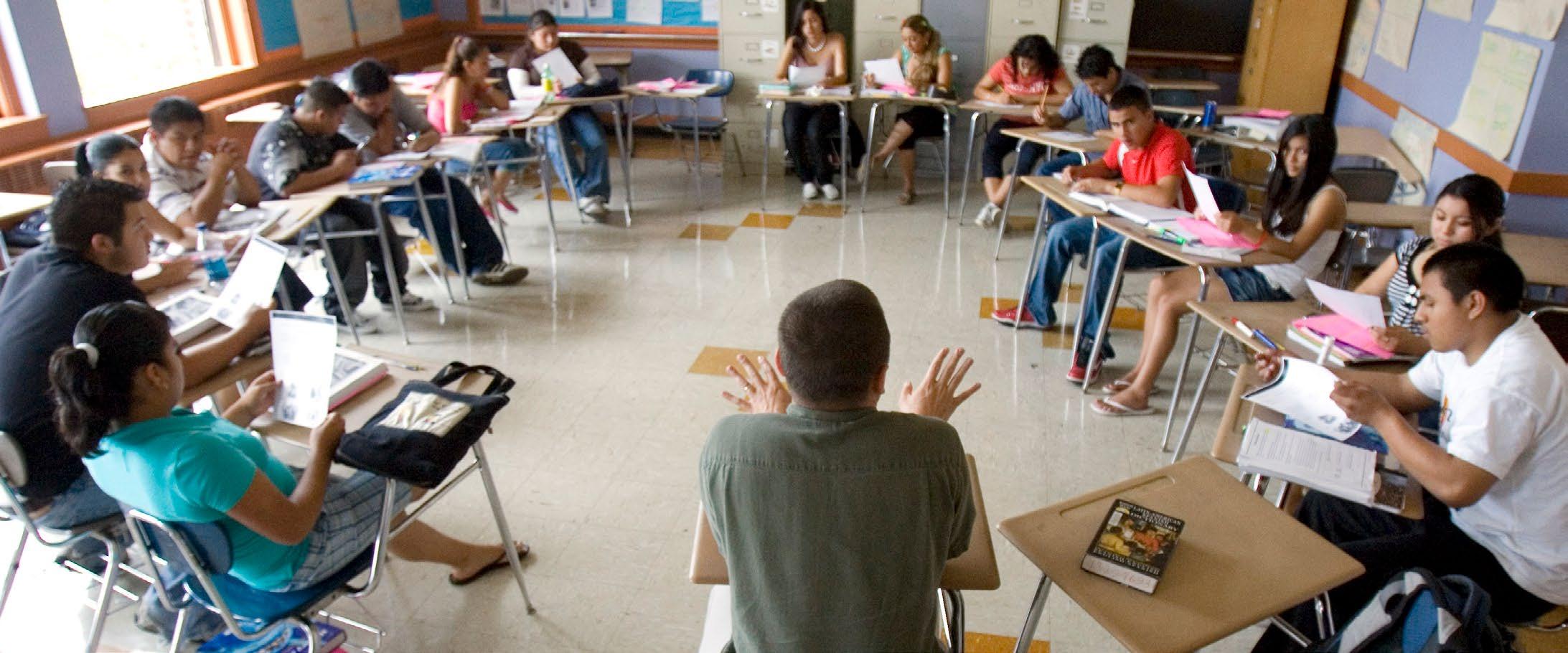
9 CARNEGIE CORPORATION OF NEW YORK
It’s not just scholars and educators who recognize the importance of prioritizing civic education; the American public does, too. In 2022, iCivics commissioned the polling firm Cygnal to conduct a national survey on Americans’ support for civic education. The survey found that nearly four out of five likely voters (including 77 percent of Republicans and 84 percent of Democrats) agreed that teaching more about civics is important; there was also strong support across Republicans and Democrats for more funding of civic education. The survey also found that 72 percent of parents of K–12 students agreed with the statement, “Education should expose students to a range of viewpoints, not just one point of view, even if I disagree with it.”
“More and more Americans understand the transformative power of civic education for young people,” said Andrew Geraghty, program officer with the Corporation’s Strengthening U.S. Democracy program. “Now the challenge is to translate that understanding into real action to expand and improve civic learning in the nation’s schools.”
STATE VOICES IN CIVICS
Across the country, civics advocates are making the case for state policies and investments that will strengthen K–12 civics instruction at all levels.
Haley DeYoung — New Hampshire

As a former social studies teacher and a current board member of the New Hampshire Council for the Social Studies, Haley DeYoung is a lover of history. She said she has been obsessed with Paul Revere since she was in the third grade. So when the opportunity came to help shape state legislation aimed at strengthening civics learning in K–12 schools, she said count me in.
“I saw in the classroom how important it is that we help kids learn to be okay with others’ differences. Civics teaches that. It provides young people with the understanding that they can disagree while still respecting someone else and their beliefs. And it helps them understand their part in history. They learn how they can contribute to their community and society, and how to get together and get along at a time when everything seems so divisive.”
Working with representatives of the New Hampshire Historical Society, the League of Women Voters of New Hampshire, and other organizations, DeYoung was part of a small group convened by NH Civics to draft a law requiring more instructional time in history, civics, and social studies for students in elementary and middle school, among other changes. As the bipartisan law moved through the process, DeYoung testified in favor of it twice before state lawmakers. The measure passed the legislature and was signed into law by Governor Chris Sununu in July 2023.
10
CARNEGIE CORPORATION HISTORY
Carnegie Corporation of New York has a long history of work and investments focused on strengthening Americans’ understanding of U.S. history and civics. This work is inspired by the founding mission articulated for the Corporation by Andrew Carnegie: “to promote the advancement and diffusion of knowledge and understanding.”
A signature moment in the Corporation’s support for civic education was its 2003 publication of The Civic Mission of Schools, a bipartisan call to action by academics, policymakers, and educators to restore civic learning in the K–12 public school system. Between convenings and drafts of the report, the process of developing The Civic Mission of Schools took nine months and involved the Corporation for National and Community Service and the White House staff of President George W. Bush. The Corporation also supported implementation of the report’s recommendations, as well as development of model civic education programs in the states.
“Carnegie Corporation’s support for The Civic Mission of Schools played a huge role in building the field of civics,” said Levine. “What had been a backwater before, with very little research and just a few nonprofits working on policy issues, was now a vibrant field of academics and nonprofits and others who were making the case that civic education matters.”
Between 2000 and 2010, the Corporation invested more than $10 million in civic education, including funds to disseminate the recommendations of The Civic Mission of Schools report, and a 2011 report, Guardian of Democracy: The Civic Mission of Schools, published by the Annenberg Public Policy Center and the Campaign for the Civic Mission of Schools.

11 CARNEGIE CORPORATION OF NEW YORK
The Corporation suspended its focused civic education investments in 2010. However, in the years that followed, the Corporation and its allies became increasingly alarmed as civics and social studies were often left out of K–12 instruction. At the time, the education field was increasingly focused on improving instruction in English language arts and the STEM subjects (science, technology, engineering, and math). When the nation’s governors joined with the Council of Chief State School Officers to announce the Common Core educational standards for K–12 students in 2010, those standards focused on English language arts and mathematics.
According to Levine, one reason for civics taking a backseat to other education reforms at the time was the fact that advocates intentionally decided not to recommend or specify the content of civics instruction, but rather to make a broader case and call to action, while highlighting “proven practices” for advancing students’ understanding of civics and government.
“I am a big believer in federalism and leaving it to the states to develop content and curricula, but I think the lack of public discussion of content and standards essentially meant civics was overlooked,” Levine said. Another challenge for civics instruction was the growing politicization of the topic as states debated what subjects and events to cover in U.S. history and social studies classes.
STATE VOICES IN CIVICS
Across the country, civics advocates are making the case for state policies and investments that will strengthen K–12 civics instruction at all levels.
Tomas C. Varela Jr. — New Jersey
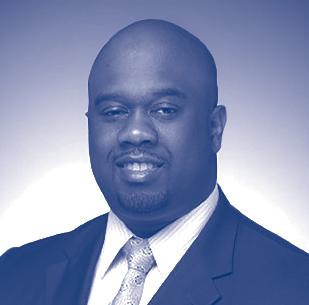
The New Jersey Black Empowerment Coalition (NJBEC) was created as a “Black-led source of voter information and civic education” for New Jerseyans in 2022. The organization’s goal is to close the extensive racial disparities for Black people in the state by building the power and voice of Black communities and supporting them to exercise their right to vote.
“When it comes to improving civic education, Black Americans need a seat at the table. For far too long, our communities were ignored in conversations about history and voting and civics. What we’re trying to do is help people see how it takes active citizenship to advance policies that will help our communities thrive. And that means we all need to have the skills and understanding that civics gives us — so we can understand how democracy works and so we can see our way to having an influence on the process.”
Tomas C. Varela Jr., NJBEC founding executive director, said strengthening civic education was a core focus for the organization from the get-go. As a participant in the CivXNow Coalition, NJBEC called on the state’s congressional delegation to support federal civics legislation, including a 2023 measure passed as part of omnibus budget legislation that provides funding for states to strengthen their civics curricula. NJBEC is also working to advance state policies and programs on civics.
12
RENEWING THE CONVERSATION
In the early 2010s, the Corporation began exploring the possibility of reentering the field of civic education. In 2013, it started providing grants to iCivics, which was founded by the late U.S. Supreme Court Justice Sandra Day O’Connor to promote innovative and engaging methods of civics instruction. During the ensuing years, iCivics became the nation’s leading nonprofit provider of civic education resources across the states. iCivics maintains a digital library of curriculum resources for teachers, while offering professional development and training.
Another important focus for the organization: providing digital literacy resources to help students navigate an online world that is rife with disinformation and misinformation. iCivics estimates that its resources reach nine million students a year across all 50 states, including a majority of U.S. middle and high school students.
Even as it was making available a range of helpful resources for teachers and students, iCivics recognized that civic education needed a more forceful push in order to truly take hold as a priority in the nation’s public schools. In 2019, together with Arizona State, Tufts, and Harvard universities, the organization convened a panel of 300 experts to create its Roadmap to Educating for American Democracy for improving civic instruction. This followed iCivics’ founding of the fast-growing CivXNow Coalition in 2018.
According to Louise Dubé, chief executive officer of iCivics since 2014, it was the Corporation’s idea to rally a broad, bipartisan, and ideologically diverse assortment of groups to come together and make a powerful case for civics in the nation’s schools. “We wanted to show that this issue cannot be partisan, that there is a groundswell of people and organizations who truly believe that American democracy is facing a state of emergency, and that civic education can provide a way out,” said Dubé.
“We wanted to show that this issue cannot be partisan, that there is a groundswell of people and organizations who truly believe that American democracy is facing a state of emergency, and that civic education can provide a way out.”
Louise
Dubé, chief executive officer, iCivics
Members of the coalition now number more than 320, with participants working in subgroups focused on a range of topics, including public policy. Allan Carey, who manages a civic education initiative with the libertarian Cato Institute, said his organization joined the coalition based on its long-standing belief that young people need to be in classes and environments where they can engage in conversations that expose them to “a multiplicity of perspectives.” Among other activities, Cato is the sponsor of the Sphere Education Initiative, which works with educators in grades 5–12 to provide knowledge and training that allows them to bring difficult conversations into classrooms on pressing issues facing the nation and the world.
Carey said Cato has taken advantage of its participation in the CivXNow Coalition to invite other coalition members to speak to teachers participating in its summer program for educators and administrators. “We want to magnify the impact of all of the organizations that are doing excellent things in civic education, and that’s what the coalition is all about,” said Carey.
13 CARNEGIE CORPORATION OF NEW YORK
OF LIKELY VOTERS THINK THAT TEACHING MORE ABOUT CIVICS IS IMPORTANT 80%
Another coalition member is the Association of Art Museum Directors. The association’s director of policy, Andy Finch, said participating in the CivXNow Coalition provides his organization with a powerful platform for lifting up local museums as strong partners with educators in supporting a fuller, more rounded social studies and history education. As a member of a CivXNow Coalition affinity group focused on policy issues, Finch also said the coalition can be a unified voice for action to strengthen civic education.
“Advocacy on civic education is essential at all levels; this is a topic that is not going to go away,” said Finch, a former official in the U.S. Department of Education. “Restoring civil society is a critical function for government and for all sectors, and we need strong policies to make it happen.”
While the CivXNow Coalition is not focused exclusively on policy change, many of its members agree with Finch that policy is essential to advancing civic learning in the U.S. One telling statistic that coalition members and other advocates are quick to note is that the United States invests just 5 cents in civic education for every 50 dollars that goes to education in the STEM subjects. While advocates agree that STEM education is critically important in the 21st-century economy, they say the country is paying a price for discounting civics.
The United States invests just 5 cents in civic education for every 50 dollars that goes to education in the STEM subjects.
At the national level, the CivXNow Coalition is a key advocate for a bipartisan federal law, the Civics Secures Democracy Act, that would provide $1 billion annually over five years to expand investment in history and civics across the nation’s K–12 and higher education systems. Introduced repeatedly over many years, the bill has failed to gain sufficient traction on Capitol Hill. Nevertheless, in late 2022, Congress approved $23 million in spending to improve civics and history education as part of a year-end omnibus budget bill; iCivics referred to the investment as “the first significant increase in federal dollars for civics in decades.” In addition to continuing its advocacy for the Civics Secures Democracy Act, CivXNow is calling for Congress to appropriate the $50 million increase in civics funding included in President Biden’s 2024 budget proposal.
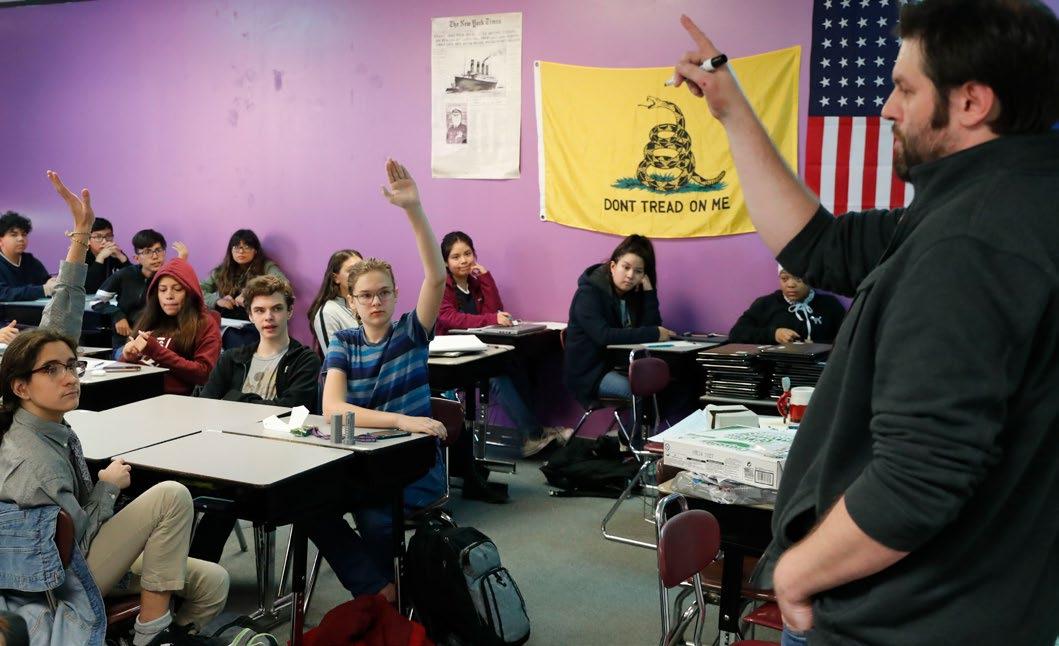
14
INVESTING IN THE STATES
STATE VOICES IN CIVICS
Across the country, civics advocates are making the case for state policies and investments that will strengthen K–12 civics instruction at all levels.
In the absence of far-reaching federal action, iCivics and the CivXNow Coalition see states as vital to progress, due to their control over education policy and spending. Based on the belief that policy work at the state level needs to be driven by state-based advocates, CivXNow works with and supports a network of state coalitions working for change in 41 U.S. states. Members of the CivXNow State Policy Task Force range from the Arizona Civics Coalition to the Ohio Council for the Social Studies to the Texas Civic Education Coalition. As partners in the national task force, they share model legislation and ideas, insights, and lessons learned as they work to strengthen their coalitions and advance stronger policies in their states.
Louise Dubé of iCivics said the task force is central to the organization’s goal to help foster a nationwide movement for change. “We are seeking to rally as many people and communities as possible to make the case for investing in civics in the nation’s K–12 schools, and the states are where that is going to happen,” Dubé said. “We need a movement strategy where educators and families are calling on states and districts to adopt policies and make investments that will capacitate young people with the knowledge, skills, and disposition to uphold American democracy.”
Senator Gary Stevens — Alaska
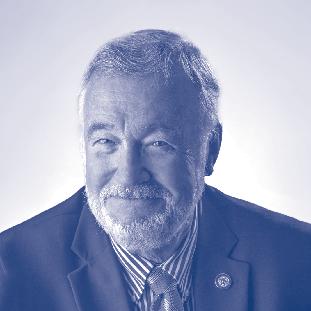
Before embarking on a career as a legislator and, ultimately, as a Republican leader in the Alaska State Senate, Senator Gary Stevens was a professor of history at the University of Alaska for 25 years. Again and again in his classrooms, he saw a lack of understanding and awareness among his young students about U.S. history and the responsibilities and rewards of citizenship. Over the past eight years, Senator Stevens has endeavored to use his influence in the legislature to help turn things around and encourage schools in the state to pay more attention to civics instruction.
“It has always been important to me for young people to understand that they need to take an active part in their government and democracy. In the Alaska Senate, I am always trying to model how we can have our differences but that it’s important to debate and compromise and come up with solutions to issues we’re facing, even if those solutions don’t go as far as we would want. We need to find a way in this country for people to come together on issues. If you study history and civics, you understand this is how democracy works.”
The current vehicle for this campaign is a law, SB 29, sponsored by Senator Stevens and passed by the state senate, which would require high school seniors to complete a civics course and a test akin to the U.S. citizenship exam in order to graduate; it is anticipated that the state house will take up the bill in 2024.
15 CARNEGIE CORPORATION OF NEW YORK
DIFFERENT STROKES . . . FOR DIFFERENT STATES
Thanks to strong advocacy of CivXNow Coalition members, states across the political spectrum have bolstered civic learning in recent legislative sessions. Recent highlights include:
● Massachusetts, which led the way with more robust standards and bipartisan legislation for more and better civic education in 2018, recently increased its annual public investment in civics to $2.5 million.
● Indiana and New Jersey adopted middle school civics course requirements, and Oregon and Rhode Island adopted new high school requirements.
● Utah passed legislation to fund experiential civic learning pilots at the district level, while Georgia passed a bill creating a permanent civic education commission (which Indiana’s bill also establishes).
In Massachusetts, a 2018 law signed by then Governor Charlie Baker, a Republican, included new requirements for an eighth-grade civics and history class, along with a requirement that every high school student in the state have the opportunity to complete a civics-related project. The latter requirement was included at the insistence of the chief sponsor of the legislation in the state house of representatives, Representative Andy X. Vargas, a Democrat.
“I would not be in the legislature if not for that civics project I participated in back in high school. It’s the whole reason I pursued a career in politics and government.”
— Andy X. Vargas, State Representative, Massachusetts
Vargas said in an interview that the civics project requirement was inspired by his own experience in high school, when he was part of a group of teenagers who participated in an experiential learning effort to develop legislation to advance through the state legislature. The group chose civic education as their focus, drafted a bill, and launched a lobbying effort that included the firstever hip-hop video used to support testimony before the legislature.
Eight years later, when Vargas was elected to the House in a 2017 special election, the legislature still had not acted on the civics bill. He made it a priority and moved the legislation through the legislature with substantial bipartisan support.
“I would not be in the legislature if not for that civics project I participated in back in high school. It’s the whole reason I pursued a career in politics and government,” Vargas said. “So I know how important it is to provide young people with experiences where they can find meaning and purpose and understand they have power and agency to change things.”
While Massachusetts emphasized project-based learning and an eighth-grade civics requirement, for Indiana the focus of recent legislation was on students in sixth grade. Republican State Representative Tony Cook, who retired in 2022, was the main author and sponsor of a 2021 measure that included the new requirements. In an interview, Cook said he was motivated by his decades of experience as a school principal and superintendent, as well as a history teacher, and his firsthand understanding that students were not getting the core civics learning they needed to become informed and active citizens.
16
“I knew from experience that Indiana had a hodgepodge approach to teaching civics in middle school, and we felt that’s really where we could make the biggest difference right now,” said Cook.
The new sixth-grade civics curriculum was approved by the State Board of Education in 2022 and went into effect in the 2023–24 school year. The focus of the curriculum: the foundations of U.S. government and the role of citizens in democracy. The 2021 law also created the Indiana Civic Education Commission, which is charged with monitoring implementation of the new civics curriculum and advancing further improvements in civics instruction. Cook said he hopes the state moves next to encouraging and supporting more schools to make community service projects part of their middle school and high school requirements.
The experiences of Indiana, Massachusetts, and other states show there is no one right way to advance civic learning across states; each state can and will adopt its own approach based on current practices and requirements, as well as the overall political environment. The important thing, according to Dubé, is for all states to keep making progress.
59%
of 18- to 29-year-olds agreed that “politics today are no longer able to meet the challenges our country is facing.”
Dubé said iCivics has adopted an “incremental strategy of state policies” aimed at ensuring that 10 states are graduating “civic-ready” students by 2026; the strategy extends to all states by 2030. Core elements of the strategy include: building and growing state coalitions; cultivating relationships with state policymakers; assuring that states are supporting effective implementation of new policies with the resources needed to make them work; and providing support for communications to build visibility and public support for civics in the states. The CivXNow Coalition is currently tracking 65 bills across 24 states aligning with the recommendations in its State Policy Menu (see page 7).
The Ronald Reagan Presidential Foundation and Institute, a CivXNow Coalition member, recently assessed the efforts of a number of states to implement civic education initiatives and reforms. Janet Tran, director of the foundation’s Center for Civics, Education, and Opportunity, said its research highlighted the importance of creating spaces where policymakers and educators can engage in frank conversations about what changes are possible in their states.
“The least effective approach to improving civics is pontificating and shouting from the rooftops,” said Tran. “We need to provide room for courage, and that means meeting people where they are and supporting the conversations and the granular, incremental work that will start to get us where we want to be.”
17 CARNEGIE CORPORATION OF NEW YORK
TIME TO INVEST
STATE VOICES IN CIVICS
Across the country, civics advocates are making the case for state policies and investments that will strengthen K–12 civics instruction at all levels.
The importance of strengthening civic education in the nation’s schools was reinforced with the release of alarming data on students’ civics and history knowledge in 2023. Data from the 2022 National Assessment of Educational Progress (NAEP), considered the “nation’s report card,” showed that eighth graders’ scores in history fell by five points in the previous four years; civics scores registered their first decline since the tests began in 1998.
According to Dubé, the NAEP data reflected “a failure to prioritize and invest in civic education.” After noting the upcoming 2024 presidential and congressional elections, as well as the 250th commemoration of the Declaration of Independence in 2026, she said the time is now to advance policies to ensure high-quality civic education for each and every student in the United States.
“We have scored a lot of wins, and there is a lot of support for this work,” she said. “What we need is for more funders and more supporters to help us build a bridge from where we are now to where we need to be.”
Dubé said she is continually inspired in her work by the model of iCivics founder Sandra Day O’Connor, who passed away in December 2023. “Civic knowledge can’t be handed down the gene pool,” O’Connor said. “It has to be learned.”
Carly Muetterties — Kentucky
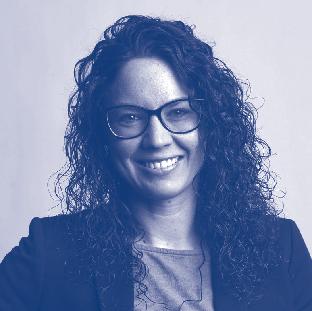
Carly Muetterties is a former social studies teacher who is leading a statewide effort in Kentucky to create a “civic seal” program providing students with special recognition for participation and leadership in community civics projects. The effort is a partnership between the Kentucky Civic Education Coalition, which Muetterties leads, and Kentucky’s Secretary of State Office.
“What’s great about the civic seal program is different teachers and different schools can implement it in different ways. And it shows that strengthening civics isn’t just about creating more coursework or new requirements. It’s also about helping schools and teachers explore what it takes to make civics and history truly relevant in students’ lives.”
Building on social studies standards adopted in Kentucky in 2019, the Kentucky Civic Seal is intended to “further encourage and incentivize informed, engaged civic learning in and outside of the schooling context,” according to the civic education coalition. During the 2023–24 school year, 10 schools in the state had one or more teachers participating in piloting the seal. Together with the secretary of state’s office, the Kentucky Civic Education Coalition hopes to learn from the pilots and create resources to drive the program’s adoption by other teachers and schools.
18
ABOUT THE AUTHOR
William H. Woodwell, Jr., is a writer, editor, and communications consultant who works with leading foundations and nonprofits to tell powerful stories about their work.
© 2024, Carnegie Corporation of New York
19 CARNEGIE CORPORATION OF NEW YORK
Photo credits: Doug Jones/Portland Press Herald via Getty Images, cover; Glenn Kulbako, page 6; AP Photo/Don Ryan, page 9; AP Photo/Ted S. Warren, page 11; AP Photo/LM Otero, page 14.
Carnegie Corporation of New York was established by Andrew Carnegie in 1911 to promote the advancement and diffusion of knowledge and understanding. In keeping with this mandate, the Corporation’s agenda focuses on the issues that he considered of paramount importance: international peace, the advancement of education and knowledge, and the strength of our democracy.
Carnegie.org/CivicsPolicy | Facebook: @CarnegieCorporation | Instagram: @ CarnegieCorp | LinkedIn
 Written by William H. Woodwell, Jr.
Written by William H. Woodwell, Jr.

 Andrew Geraghty Program Officer
Andrew Geraghty Program Officer









